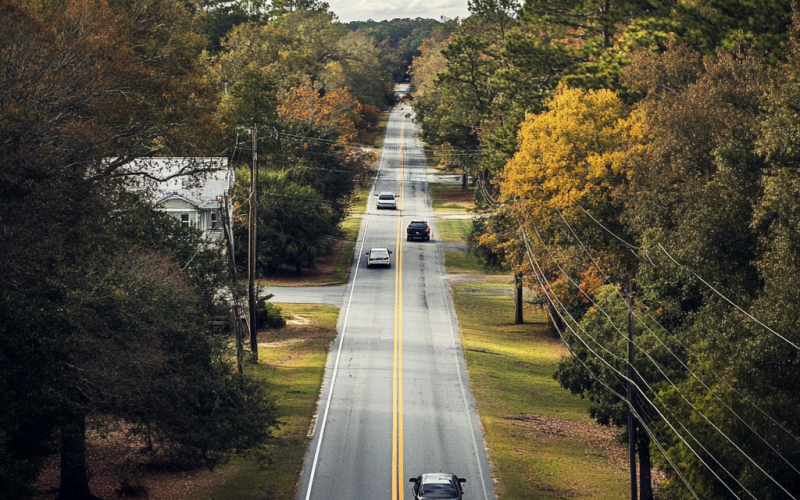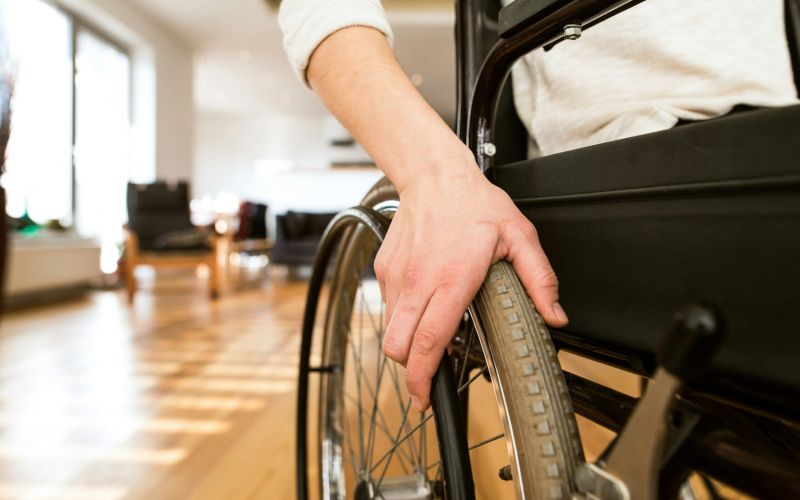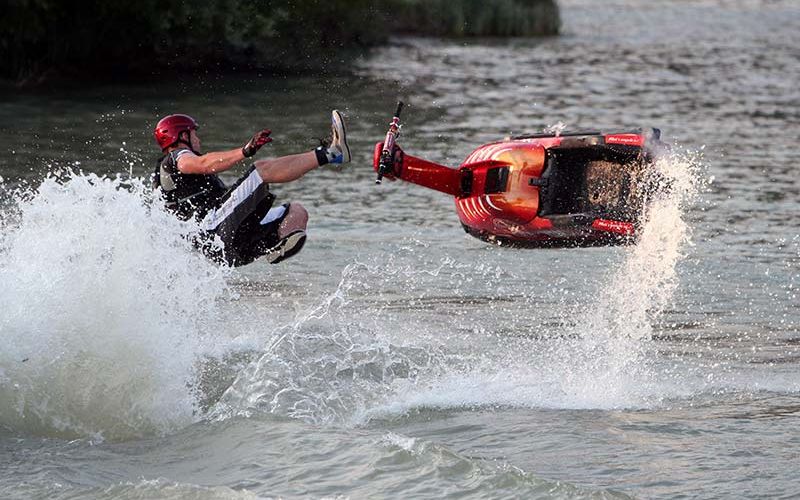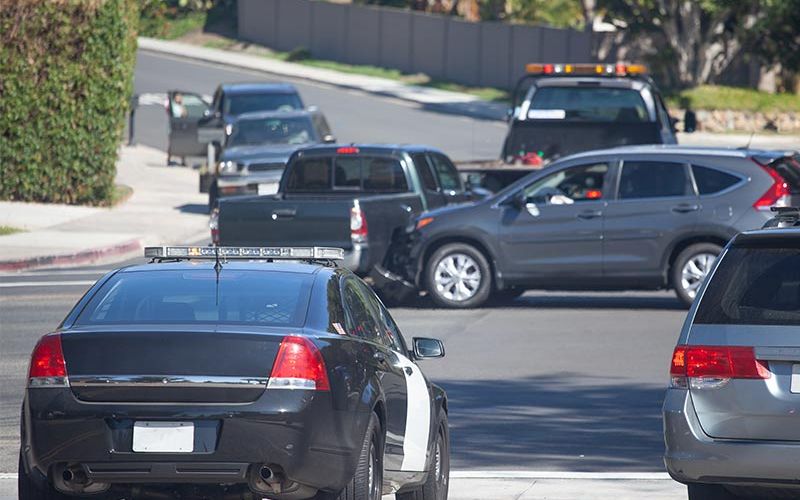Filing a Camp Lejeune Lawsuit? You Need These Documents



The Agency for Toxic Substances and Disease Registry (ATSDR) is a public health agency operating under the umbrella of the U.S. Department of Health and Human Services (HHS). The federal agency has steadily been compiling data and analyzing the water contamination occurring at two water treatment plants at the U.S. Marine Corps Base Camp Lejeune, located in Jacksonville, North Carolina.
The water treatment plants in question are the Tarawa Terrace and Hadnot Point water facilities. In the early 1980s, it was discovered VOCs were in the water supply. In time, information emerged that the water supply was contaminated by chemicals used by a nearby off-base dry cleaner and by the military itself. To date, the ATSDR estimates over one million people have been affected by the volatile organic compounds (VOCs) present in the water at Camp Lejeune.
If you, or a family member, suffer from the adverse health effects associated with the toxic water supply at the U.S. Marine Corps military base and currently reside in South Carolina, the experienced and compassionate personal injury lawyers at HawkLaw, P.A. are here for you. We can help you gather the documents you need to file a Camp Lejeune claim and, if necessary, file a lawsuit on your behalf. To obtain a free case evaluation*, call our law firm at 888-HAWKLAW.
Who Qualifies for the Camp Lejeune Lawsuit?
The number of people who qualify for a Camp Lejeune lawsuit is staggering. Estimates suggest more than one million people suffered exposure to toxic chemicals such as PCE (Tetrachloroethylene), TCE (Trichloroethylene), vinyl chloride, and benzene. All of these individuals may qualify for a Camp Lejeune lawsuit.
According to the criteria the U.S. government outlines, essentially, anyone who resided or worked at the Marine Corps base from August 1, 1953, and December 31, 1987 for 30 days or more have eligibility if they suffer one or more of any specific adverse health conditions. Active duty service members of the Army, Air Force, Navy, Marines, and Coast Guard are all eligible if they meet the criteria. Other eligible persons who can file include:
- Spouses, children, and other family members living in the household at Camp Lejeune
- On-base workers, including government civilian workers and those working for contractors
- Soldiers, cadets, veterans, reservists, and National Guard members
- Babies exposed in utero
- Family members of deceased loved ones
The days spent at Camp Lejeune or MCAS New River are cumulative, not consecutive. For instance, if you were on a brief stint for three weeks of training and exposed to toxic drinking water and then came back for three additional weeks the following year during the timeframe outlined under the Camp Lejeune Justice Act, you would qualify, as long as you meet any of the health conditions outlined by the Department of Veterans Affairs (VA).
Can I File a Camp Lejeune Lawsuit on Behalf of a Loved One?
If you are the spouse, child, parent, or sibling of an individual who died due to a disease or illness caused by the contaminated water found at Camp Lejeune, you can file a lawsuit on behalf of your loved one. In this situation, you would qualify to file a wrongful death lawsuit.
Compensation will never ease the pain you now suffer after losing your loved one, but it can perhaps help ease any financial burdens you suffer since the loss of your loved one, such as past medical bills, funeral expenses, and loss of income support. Receiving a monetary award can also hold the government accountable for its actions which may offer a sense justice was delivered.
Is There a Deadline for Camp Lejeune Claims?
Yes, there is a deadline to file. It is important to know your time is limited for filing a claim against the U.S. government for damages it caused by contaminating the drinking water supply at the Marine base. The federal government’s deadline for filing a Camp Lejeune lawsuit is two years from the date the Honoring Our PACT Act, which was signed by President Biden on August 10, 2022. With the passage of this law, there is an inclusion of the Camp Lejeune Justice Act.
However, the government clearly stipulates a hard deadline. This means you only have until August 10, 2024 to file a claim for a Camp Lejeune water contamination lawsuit. This sounds like a long time, but it takes time to gather evidence, file the required paperwork, and put together a strong case. Do not wait to start the filing process because you may miss your chance at receiving compensation for your injuries.
How Do I File a Claim for Camp Lejeune Water Contamination in South Carolina?
In order to file a Camp Lejeune lawsuit, according to the stringent aspects of the law, you will have already had to file a disability claim with the VA. If you have not filed with the VA and have yet to send them the documentation they require, you must do so as soon as possible. The following are the steps you or your loved one should take.
When Should I File a Disability Claim?
The VA has up to 180 days to make a decision on your claim. Before the signing of the Honoring Our PACT Act, the average length of VA decisions took 125 days. As of October 2022, the agency cites on its webpage that decisions take about 102 days. This is not a lot of time, just over three months.
What Do I Need to File a Disability Claim?
To file a disability claim with the VA, you will need the following documents, most of which can be found in your military records.
- Show proof (e.g., your military service records) indicating you lived, worked, or otherwise spent time at Camp Lejeune for the specified timeframe.
- Provide the VA with documentation of your health problems by submitting your medical records.
- File your claim online at VA.gov, seek assistance from a Veterans Service Officer in filing, or visit your VA Regional Office to begin your claim.
After you complete your disability claim with the VA and received a decision, it is a good idea to consult with an attorney right away, if not sooner. Between the VA benefits and filing a toxic water lawsuit, as a claimant, you better your chances of getting the healthcare and amount of compensation you need.
Should I Hire an Attorney?
Yes, you want to hire an attorney to get your Camp Lejeune case ready. The U.S. federal government has made the process of filing a Camp Lejeune water contamination lawsuit quite complex. Additionally, the legal jargon and necessary evidence you must present may be confusing. It is important to file your claim correctly.
You will also want to have your case ready in the event you are denied benefits and need to take another course of action. However, even if the VA approves your benefits, you can still file a lawsuit under the Camp Lejeune Justice Act. The settlement amount you receive from the settlement or trial award will be reduced, offset, or deducted from any previous benefits you received from the VA. In the time leading up to your filing a claim, your personal injury attorney can:
- Meticulously go through the required documents
- Help you to assemble the information you need
- File file your lawsuit in the federal court.
The U.S. government is admitting its wrongdoing and is willing to compensate victims for their suffering after being exposed to toxic drinking water, but the process is not simply filling out a form and waiting for compensation. The way the claim process is structured, you need to present a solid case to the government. The HawkLaw legal team can take care of these details – we Fight to Win for you.
If you file incorrectly, you can experience a denial or delay. As of right now, the government places a stringent date on claims. You must have everything in order and send it in before August 10, 2024. Before this time, it is very likely your tort case will escalate to a class action lawsuit due to so many victims coming forward with water contamination cases.
Why You Need Your Military Records
All Camp Lejeune water contamination claims require service members to show their DD214 form. This vital document, which is issued by the Department of Defense to each veteran, contains one of the most important aspects you will need for your lawsuit: where and when you were stationed during your military career. Your military records go a long way toward solidifying the documentation you need to prove your case.
What Should I Do If I No Longer Have My DD214?
If you cannot locate your DD214, you will need to request a new one as soon as possible. You can do this in one of several ways:
- Fill out Form SF180 and fax or mail the National Personnel Records Center (NPRC).
- Go online to milConnect and follow the directions.
- Contact the Department of Veterans Affairs.
You can also request your loved ones’ military service records; you can also do so through the NPRC or the VA. Your regional office can also help you if you are having difficulty obtaining your loved one’s military records.
What Documents Should You Make Sure You Have For a Camp Lejeune Lawsuit?
To have all the documentation you will need to present a credible case for compensation, you will need several documents.
DD214
While we briefly covered this above, we cannot emphasize how important the DD214 document will be to your toxic water case. Along with where and when you were stationed, it shows a record of your date of military separation, the reason for separation, final duty station, and final rank. It also shows your condition of discharge (honorable, general, other than honorable, dishonorable, or bad conduct).
Other information included on the DD214 is the date and place of your enlistment, qualifications, performance, training, administrative remarks, medals, decorations, campaign awards, military education, disciplinary action, total creditable service, final rank, and last duty station. The information found in these records can prove very valuable to helping you put together a case.
Medical Records
You and your family’s medical records are also crucial because, in addition to proving you were at Camp Lejeune or New River during the water contamination period, you must demonstrate you suffered harm as a direct result of this exposure.
Medical records that can help support your claim include documented symptoms, diagnosis, test and imaging results, medications, surgery, and any treatments you received. Sadly, the VOCs found in the Marine Corps military base water supply are linked to dozens of adverse health conditions, including but not limited to:
- Leukemia
- Parkinson’s disease
- Myelodysplastic syndromes
- Kidney cancer
- Scleroderma
- Non-Hodgkin’s lymphoma
- Liver cancer
- Numerous other cancers
- Cardiac defects
- Birth defects
- Miscarriage and fetal death
- Neurobehavioral effects
- Liver cirrhosis
- Immune issues
This is not a full list but does outline many of the presumptive and other prominent health problems and medical conditions the Camp Lejeune and New River victims are suffering. Your medical records will help build a stronger case for you.
Housing Records
Your housing records can also aid in strengthening the validity of your case. Any document proving your presence at Camp Lejeune’s family housing or barracks is important. Unfortunately, this information is not included in the DD214, but there are other ways you can prove your residency.
You can submit a leasing agreement, insurance policy information, school enrollment for children, and bills. Essentially, any official documents can help to support your claim. If you have other documentation that is not listed here, ask your attorney if those papers or other records would be acceptable to use to help build your water contamination case.
What Are the Benefits of Filing a Camp Lejeune Lawsuit?
Filing a Camp Lejeune lawsuit can make a big difference in your life or that of any surviving family members. While no amount of money can replace the loss of your health, or if you are a family member, take the place of your loved one’s life, compensation can help you in many other ways.
- Pay for past, present, and future medical expenses
- Replace lost wages
- Supplement for any loss of future earnings
- Provide justice for your losses
- Cover all of your loved one’s burial and funeral expenses
- Provide justice for your emotional anguish and your pain and suffering
Many of the medical conditions and cancers associated with toxic water exposure are very expensive to treat, and most are long-term or permanent conditions. Compensation can help provide the ongoing financial support you and your family will need going forward.
Victims should not have to bear the brunt of these expenses and losses that are the result of actions that are no fault of their own. Many people fell sick from doing ordinary everyday activities such as drinking water, cooking, doing laundry, showering, and performing aspects of their job.
Regrettably, the Marine Corps discovered the toxic water roughly three decades after it began, but they did not even begin to stop it until three years after the 1982 discovery. There is simply no excuse for not notifying the public of the hazards they were facing daily in the subsequent years of the discovery of VOCs.
Why Choose HawkLaw for Your Camp Lejeune Claim?
If you seek a diligent attorney to represent you in your Camp Lejeune water contamination case, HawkLaw is a wonderful choice. We are highly experienced in the legal process and understand how suffering this kind of personal injury is physically, emotionally, and financially devastating. Our attorneys will offer advice that is confidential and completely personalized to your situation.
Other details we will handle include gathering details about your time at Camp Lejeune, collecting documentation to support your claim, using documents to link your illness to contaminated water, and developing a detailed account of how the exposure you suffered made you sick and adversely impacted your life. Lastly, we will submit a claim to the U.S. government and file a lawsuit on your behalf if you are unable to reach a settlement with them.
The HawkLaw legal team has been supporting and fighting for South Carolina injury victims since 2002. As a recognized law firm in the Palmetto State, we pride ourselves on helping people receive what they are owed. We value kind and open relationships with our clients, as many of our clients will attest.
There Are No Second Chances When You File for the Camp Lejeune Lawsuit
Knowing your sickness was caused by outside factors can be emotionally taxing. Worse, the legal system can be a confusing place to navigate if you are looking to file a lawsuit. The caring attorneys at HawkLaw want to help you get through this difficult time and help to ease your pain.
Understand you must file your Camp Lejeune claim correctly, and this is hard to do without the guidance of an attorney. To date, many victims might not even realize they are sick because of the contaminated water located at the North Carolina military base.
If you think you might be eligible or your illness is connected to this devastating situation – and even if you are not sure – contact HawkLaw today, and we will examine your situation. HawkLaw is here for you. To obtain a free case evaluation*, contact us at 888-HAWKLAW or fill out our online contact form.
John D. Hawkins
John Hawkins is the Founder and CEO of HawkLaw He has been licensed to practice law in South Carolina since his graduation with honors in 1994 from the University of South Carolina School of Law, where he was on the Law Review and Order of Wig and Robe.
-
$3,000,000*SettlementTrucking Accident
-
$1,005,000*SettlementCar Accident
-
$575,000*SettlementPersonal Injury
"*" indicates required fields













